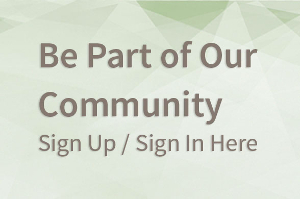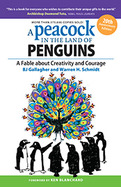BK Blog Post
On Abortion: Five Damn Good Reasons to Hear the Other Side Out
 Posted by
Jeevan Sivasubramaniam,
Managing Director, Editorial,
Berrett-Koehler Publishers Inc.
Posted by
Jeevan Sivasubramaniam,
Managing Director, Editorial,
Berrett-Koehler Publishers Inc.
In Aspen Baker's new book, she explains the importance of dialogue and communications between people on all sides of polarizing issues. Aspen does this with her organization, Exhale, around the subject of abortion. The U.S. is one of the most divided and partisan nations in the world, so she certainly has her work cut out for her.
But why should we listen to opposing voices? What can really be gained from focusing on a deadlock? Well, there are actually five very good reasons to hear out your opponent:
1. Because of our proclivity towards confirmation bias: Though well known in the world of scientific research, most people never consider how this plays out in other fields, thus ignoring potentially valuable information or data that (that also may contradict us). Confirmation bias is when we seek out data or evidence that solely supports our opinion or point of view. We think we're well-informed by reading the New York Times and watching CNN but we prefer these outlets because they tend to corroborate our views. The Wall Street Journal reader who watches Fox News does likewise and feels he or she is equally well informed. Neither are, really.
2. Because it's not about issues that divide us but the stories that bind us: Issues and opinions seem to differ vastly from one another, but our stories and our experiences bring us together. The human experience is just that: human. Everyone has similar stories and experiences -- perhaps not identical in their narrative, but very much alike in their sentiment, emotion, and learning. It's about connecting with people at that level and listening to one another's stories and experiences to recognize the commonalities.
3. Because "they" don't listen to me, so why should I listen to them? It sounds almost childish, but you have no doubt heard these words from many people. The problem is that taking a firm stand supposedly shows strength and resolution whereas exploring all avenues suggests a weakness or wavering allegiance. This is why fundamentalism in all its forms works so well for many people -- it is absolute and black-and-white; there is no interpretation issue and they can be secure that what they know is the absolute truth. This also assures that you will not grow, expand, or evolve in any way. If others choose that, so be it, but why should you?
4. Because it’s not always about what you think it’s about: It’s easy to assume that if someone is particularly religious that their opposition to abortion must be based on religion, and it’s just as easy if you are religious to think that atheists are pro-choice because they lack a spiritual foundation and so deny spiritually ethical implications in favor of self-centered practicality. But there are plenty of very religious people who are pro-choice and plenty of secular humanists who have a problem with abortion. There are many arguments and reasons on both sides of the issue and if you want to be informed and aware, you can’t make one-dimensional assumptions nor relegate yourself to any one side, otherwise you are just furthering the ignorance.
5. Because you may change your mind...and that's a good thing: There's nothing quite as scary as exposing yourself to "the other side" and realizing that perhaps you were misinformed or unaware of some major issues and now have to re-examine your beliefs and values. However, this does happen a lot and people do "switch sides." Such people are often called traitors and have to contend with the anger of their former colleagues and the suspicions of their new partners, not to mention needing to rebuild their own values system. However, those who have experienced and supported both sides of a debate know best and understand those grey areas that exist in the hidden space between two extremes.






